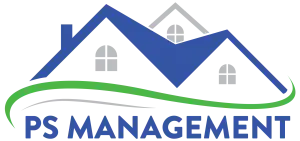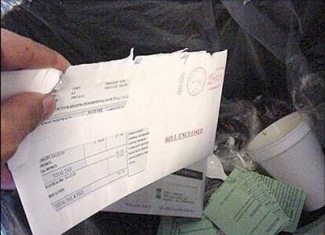Almost all HOA management companies have a regular community inspection schedule as part of their management duties when caring for a property. Every community is different and so are the governing covenant documents as well. Out of all the restrictive covenants that we help our communities enforce, it seems one stands out amongst them as the most bothersome to many homeowners. I am, of course, talking about the rules and restrictions regarding trash can and recycle receptacles.
Many HOA communities have restrictions specifically regarding the placement of trash and recycle bins and the timing of which they are allowed to be out. Recently this topic has become more of an issue specifically because many Home Owners Associations are now on what we call a “Single Stream” system of recycling, requiring an additional, large receptacle. So now most communities have two different containers to deal with.
It is a shared feeling amongst many homeowners that this specific type of violation is petty and unimportant. Many don’t understand why their documents restrict the location, or time in which their receptacle can be out for pick-up. The most common language we see in our documents usually states that the receptacles “cannot be in public view”. This usually means that trash bins must be completely hidden from the view from the street. Some communities of course have different rules or regulations, but most have some form or variation of this rule.
In order to comply with this type of regulation, many homeowners place their trash cans in their garage area or behind their back yard fence gate. This way they are completely hidden and out of the way.
Believe it or not, there are several good reasons for having these kinds of restrictions. Below are the reasons that developers and lawyers involved in the initial community setup include trash and recycle bin restrictions.
Aesthetics – No one really likes looking at trash cans up and down a street.
Let’s face it. Trash and recycle cans are not the most attractive things in the world. They are big, bulky, and usually an unattractive color, like bright green or mud brown. Many HOA’s are located in suburban areas of major cities. Most are trying to achieve a very specific, clean, attractive look and get away from the look of a downtown city street.
Animal control – Keeping your trash bins out can be an invitation for some unwanted guests.
Every family loves their family cats and dogs. However, no one enjoys when the neighbor’s pets and other wild animals make a mess when rummaging for food in the trash. This can make for some unpleasant encounters with possibly a mother raccoon trying to gather food for babies, or a skunk trying to finish off their chicken wings from last week. Not to mention, that the homeowner will ultimately have to clean up the overturned trash that has blown all over their yard.
Identity theft – Your trash can be a target for new age thieves
Identity theft has been a reality for millions of Americans and the number of reported cases continues to be on the rise. Thieves have been known to rummage through the trash of homeowners searching for anything they can use to their advantage. They are typically looking for credit card offers, bank statements, social security information, and anything they can use to gain access to your personal credit. Many people would like to think they don’t just throw this kind of information away, but you’d be surprised how careless people can be at times. If a thief cannot spot your trash, they have nothing to rummage through.
Although homeowners may get frustrated at times with their HOA community’s rules and regulations, they must understand that they are in place for the greater good. Restrictions concerning HOA trash can and recycle receptacles are no different. They are in place to help protect the community and its homeowners. Cooperation in following the restrictive covenants helps your HOA manager accomplish their goal of having a well rounded, safe, clean community that maintains its property values.


